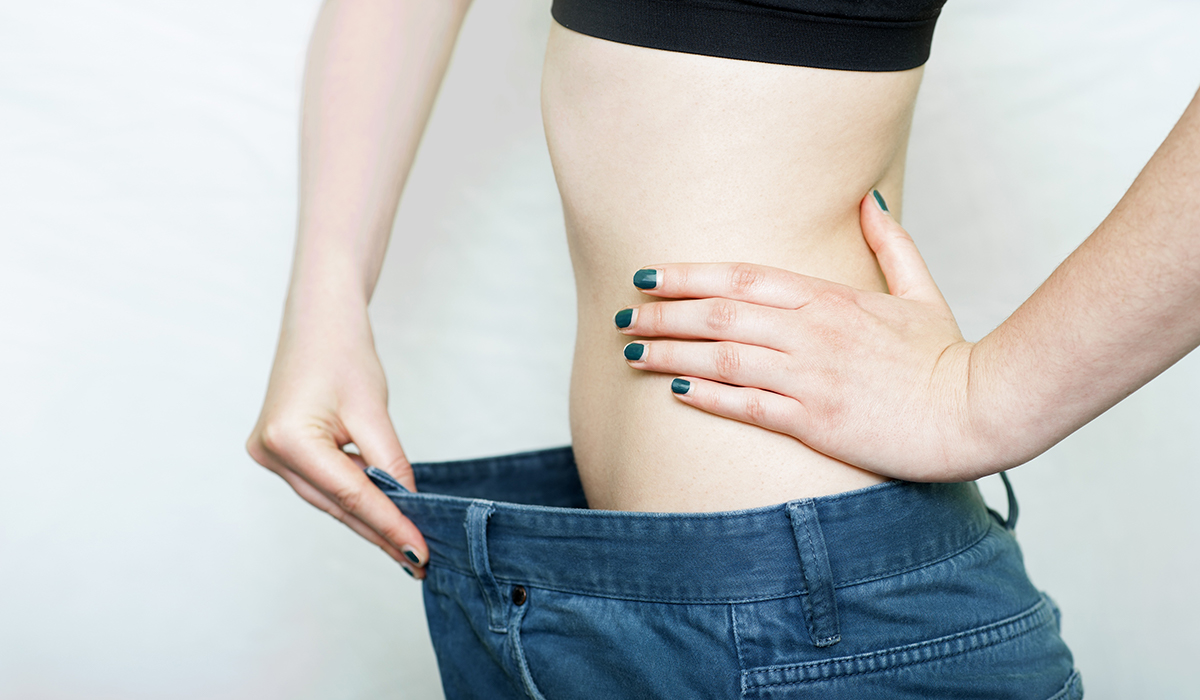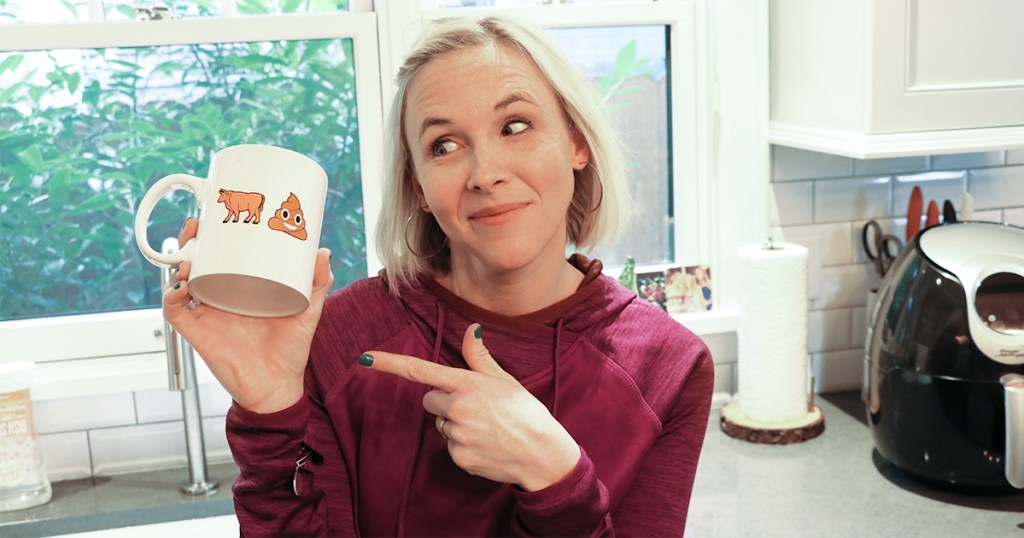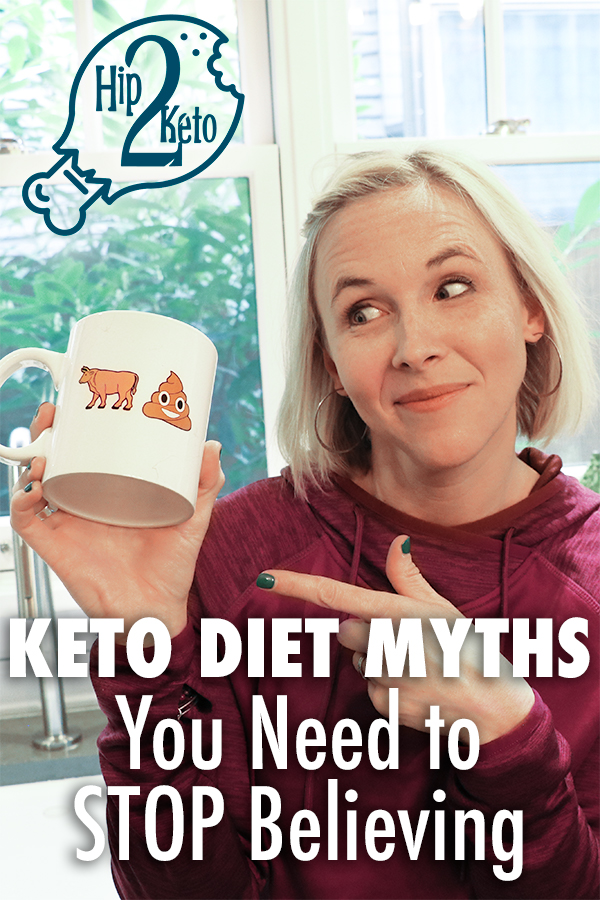Keto Myths You Should Stop Believing: Water Weight, Fiber, Muscle Wasting & More
With fame comes misinformation…
Google searches for the ketogenic (keto) diet have skyrocketed over the past year and discussion’s popping up all over the internet and social media sites. Misinformation can derail anyone who is considering transitioning to a fat-fueled way of living. But don’t loosen your belt just yet, because the fat-burning benefits are just around the corner!
Today, we continue to set the record straight regarding some of the common myths surrounding keto.
Myth #1: Keto foods lack fiber, causing constipation.

A well-formulated keto diet is anything but deficient in fiber. Non-starchy fibrous vegetables such as leafy greens and cruciferous (broccoli, kale, and cauliflower, etc.) are recommended in abundance, so eat up! In addition, other fibrous foods like nuts, avocado, and berries are all allowed and encouraged on a keto diet. Typically, any constipation experienced from first going keto is likely related to electrolyte imbalances and inadequate fluid intake, as well as the gut needing time to heal and adapt to a new fuel source.
Hip Tip: Read up about bowel changes when starting the keto diet!
Myth #2: The keto diet causes muscle wasting.

There’s no science supporting muscle loss with low-carbohydrate diets. And in fact, research actually shows ketones providing a protective benefit against muscle catabolism (breakdown) ?. Carbohydrates are not essential to maintain or build muscle mass, but paying special attention to maintaining good nutrition while on a keto diet is.
Myth #3: It’s just water loss!

When first starting a ketogenic diet (or any low-carb diet), the body will deplete its glycogen stores (stored glucose in the liver and muscle), which in turn will release and excrete water. This is to be expected and usually results in a significant amount of weight loss in the beginning. However, as the body adapts to using stored fat as fuel, the unwanted weight begins to melt away at a nice and steady pace. So, there is some truth to “it’s just water loss”, but only in the beginning.
Hip Tip: Having trouble cutting carbs? Check out these easy ways to remove them from your diet!
Myth #4: The keto diet is bad for your kidneys.

A common misunderstanding is thinking the keto diet is high in protein, which can potentially be harmful to someone with an existing kidney disease. The fact is, the keto diet is low in carbohydrate, high in fat, and moderate in protein. Anyone with healthy kidneys will find a protective benefit of the keto diet by its effect of lowering blood sugar and insulin, which actually protects the kidneys!
Now that we have cleared up some of the misinformation surrounding keto, tighten your belt strap (because you’ll be able to!) and indulge in the fat-fueled benefits that keto has to offer.
Stay strong and keto-on!
Curious about some other common keto myths? Check out this article.






Thank you SO MUCH for this post! Yesterday while at a birthday party, I was asked why I declined birthday cake (because it’s just not like me at ALL). I shared that I had begun intermittent fasting along with a ketogenic diet (I’m new… literally a week in and I started after reading The Obesity Code by Dr. Jason Fung). A guy quickly responded “Man, Keto diets are really bad for your kidneys!” I didn’t want to get into a debate or anything, so I kind of breezed on past it. Being new, I didn’t know what he was basing this opinion on and it made me a little nervous. This post, along with a couple others, confirmed that I was led in this direction for a reason!
Thank you for this list but I am having trouble, myself.
Finally got the hang of balancing everything out, except fiber.
I’ve tried broccoli, cauliflower, brussel sprouts as well as salads with avocado.
The higher the fiber, the higher the carbs.
My limit is 20g of carbs and 25g of fiber a day and can’t seem to get past 6/7/8 grams.
Thought of chia seeds but they’re 12g of carbs and 10g of fiber for 2 Tbsp and I’d like to keep vegetables in my diet.
How do I get more fiber?
Thank you for your time
Hi Ro! Vegetables are a big staple and really the best way to get your fiber unless you are following carnivore. I know everyone’s journey is different but generally you subtract the fiber to get the net carbs. So although the carbs may be higher in veggies the fiber helps counteract the overall count. Hope this helps❤